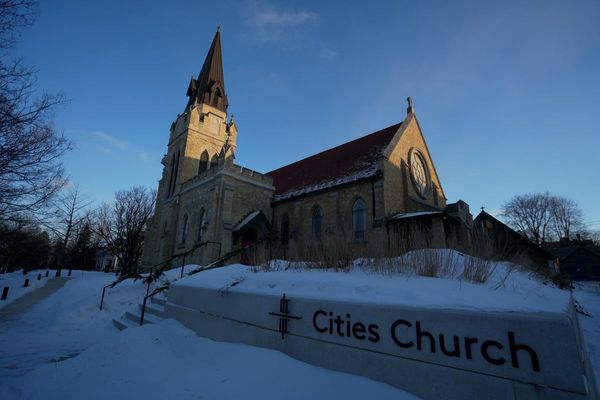Social democracy is the answer.
The question is how to deliver inclusive, broad-based wellbeing to the 650 million or so people in Latin America and the Caribbean. Despite a long history of social struggle and revolution, successive governments of various ideological stripes throughout the region have ultimately failed to provide its citizens the rights and opportunities embodied in their egalitarian national mythologies.
State-led, inward-looking development strategies crashed and burned, giving way to pro-market reforms under the aegis of the neoliberal “Washington Consensus.” Those didn’t deliver either. Democracy — embraced almost universally in the wake of the blood-soaked military dictatorships that prevailed from the 1960s through the 1980s — also failed to provide most Latin Americans with a life of dignity.
The present-day consequences are obvious: turmoil in Peru; the storming of Brazil’s seat of government by followers of former president Jair Bolsonaro; the left-right whiplash of Chilean politics and the political maelstrom in the runup to presidential elections in Argentina; the violence pushing thousands of migrants from Central America, Haiti and Venezuela.
Social democracy is the solution. But saying that doesn’t get you very far. It just raises a new question: Given evidence of its success, why hasn’t Latin America given it a shot?
In the postwar years of the 20th century, Western European democracies built welfare states upon tax-funded redistribution and social insurance to underpin an enviable track record of social and political stability. From Scandinavia to the Mediterranean, universal access to health services and old-age pensions, government-funded childcare and housing assistance successfully mitigated the inequality delivered by the markets and laid the foundation for a fairly sturdy social contract.
In Latin America, by contrast, redistribution had few friends — resisted fiercely by economic elites on the right yet dismissed on the left as a diversion from the revolutionary program that would deliver a workers’ utopia. So redistribution has rarely been more than an afterthought: Inequality in many Latin American countries is not much deeper than Europe’s, before taxes and government benefits kick in. But the public sector does next to nothing to close the gap.
Governments in the region have now and then introduced new redistribution programs, like Brazil’s “Bolsa Familia”, launched during the first administration of President Luiz Inácio Lula da Silva, which provided, on average $35 a month to some 13 million low-income families. While they have been effective at combating poverty, they are narrowly targeted. And they have proven politically vulnerable.
What to do with these observations? A group of Latin American thinkers — academics, think-tankers, policymakers from past and present governments — have been grappling with these questions, trying to come up with a proposal to start building welfare states across the Western Hemisphere. (Full disclosure: I have participated in several of their meetings.)
Their project, held under the auspices of the United Nations Development Program and divulged last month in Mexican media, includes valuable ideas to overcome some of Latin America’s idiosyncratic obstacles.
Consider informality. A typical worker in Latin America will expend half of his or her working life in the informal sector — outside the contributory system of payroll taxes used to fund pensions and other elements of social insurance in most of the world. What’s more, 90% of employers have five or fewer employees. That makes it difficult for them to fund unemployment insurance.
What’s necessary, writes the Mexican economist Santiago Levy, is to “generate a new architecture of social protection based on a principle of universality”: to cover everybody’s health services and pensions, as well as insurance against disability, death and unemployment. Benefits cannot be tied to the track record of employment.
In addition, the authors propose prioritizing government funding for the care economy. They cite estimates by the UN’s Economic Commission for Latin America and the Caribbean that non-remunerated work caring for children, the sick and the elderly — which is overwhelmingly provided by women — amounts to somewhere between 16% and 25% of GDP. This is not just inequitable, it keeps large numbers of productive workers out of the formal workforce.
This effort provides an interesting starting point. And yet the perhaps inevitable limitation of the proposal is that it cannot overcome the most important political challenge to provide social insurance and build true welfare states in Latin America: the need to pay for it.
It won’t be cheap. “It's an illusion to think of building solid welfare states with tax burdens below 30 points of GDP,” write the authors of the group report, former Mexican foreign minister Jorge Castañeda, political scientist Gaspard Estrada and Carlos Ominami, a former economy minister of Chile.
Maybe that’s not much, compared with the 34% of GDP raised, on average, across the industrialized nations in the OECD. But it’s more than what most Latin American governments are used to raising.
On average, the tax take in Latin America amounts to 23% of GDP, the authors write. (Argentina and Brazil raise significantly more, but the money is tied up by bloated public sector payrolls and pensions.) And even the governments of the left that have come to power across the region in recent years are having trouble raising more.
Consider Chile. Coming into office with the promise to bury neoliberalism and rekindle solidarity, the government of Gabriel Boric proposed to Congress a bill that would raise government revenue — which stands at 22% of GDP — by another 3.6 points, to fund a more generous safety net. Congress said no.
In Colombia, the new left-wing government of Gustavo Petro managed to get a tax package through Congress, but only to raise another 1.3% of gross domestic product. In Mexico, the government of Andrés Manuel López Obrador isn’t even trying: Tax revenue is near the lowest among big Latin American countries and the budget is perhaps the tightest in the world.
Maybe the convulsions wracking Latin America can help deliver the region from its frugality. After all, all the way back to Otto von Bismark, the construction of social insurance around the world has been largely motivated by conservative fear of political turmoil. Today, the main threat to democracy comes from the populist right. But the argument holds: Give workers health care and they may not demand revolution. Ensuring a stable social compact may be something the economic elites are willing to pay for.
“Latin American democracy is in debt with the societies that built it,” write Castañeda, Estrada and Ominami. Its survival requires this debt to be acquitted.
____
(Eduardo Porter is a Bloomberg Opinion columnist covering Latin America, US economic policy and immigration. He is the author of "American Poison: How Racial Hostility Destroyed Our Promise" and "The Price of Everything: Finding Method in the Madness of What Things Cost.")







